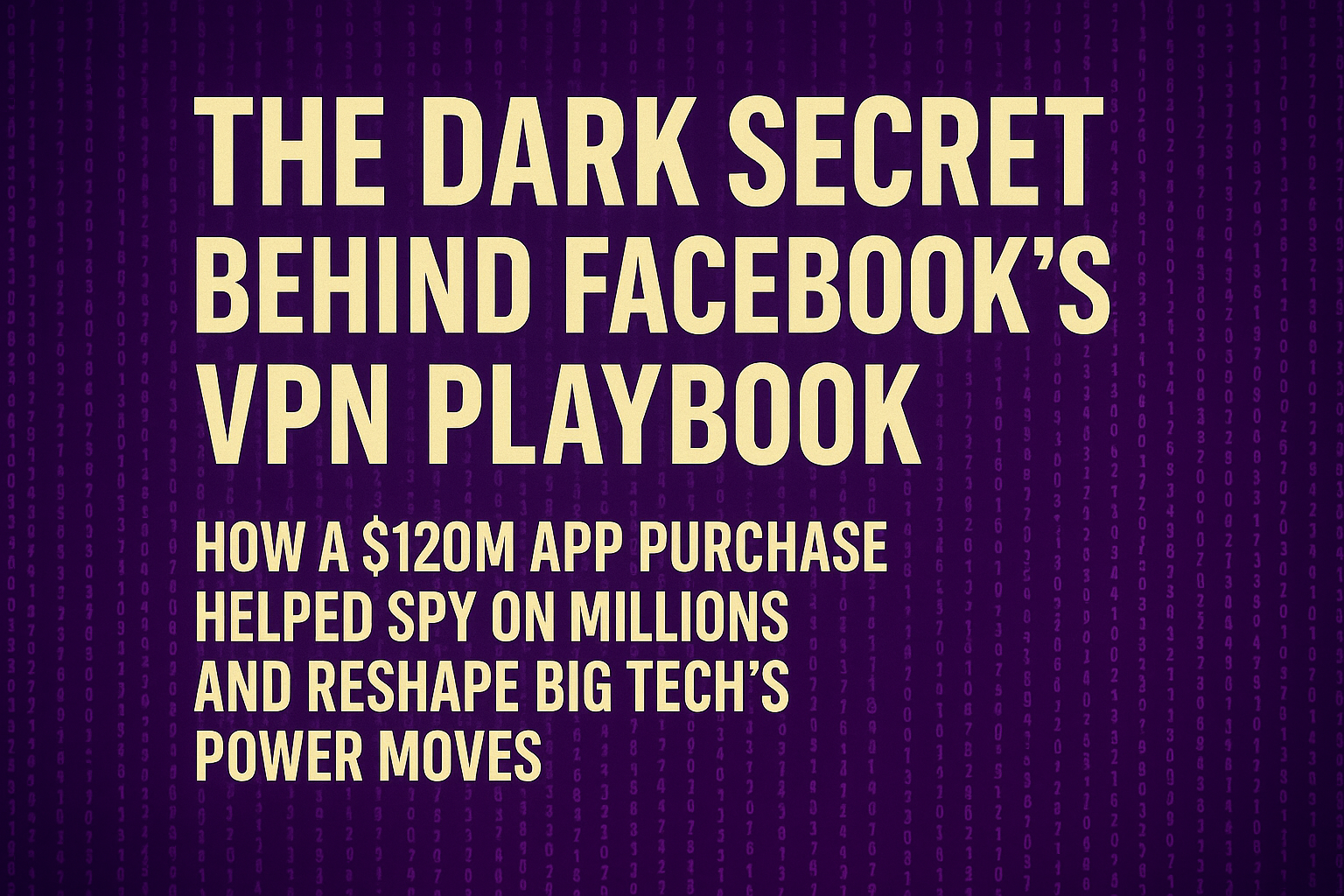Your basket is currently empty!
How a $120M App Purchase Helped Spy on Millions and Reshape Big Tech’s Power Moves
Facebook once bought a VPN app for $120 million, not to offer privacy to users, but to quietly monitor the digital habits of over 33 million unsuspecting phones worldwide. What looked like a harmless data-saving tool became one of Silicon Valley’s most controversial surveillance plays fueling some of the boldest acquisitions in tech history.
The app was called Onavo. On the surface, it promised mobile users protection, privacy, and better control over their data usage. But behind the scenes, Onavo operated more like a corporate espionage engine feeding Facebook private insights into which apps were gaining momentum before the public or Wall Street ever knew.
This wasn’t just a clever competitive edge. It was a paradigm-shifting data siphon.
Facebook used the intelligence gathered through Onavo to track usage trends in real-time. That’s how they noticed WhatsApp exploding in global popularity. Before the media or markets had caught on, Facebook saw the early data. Within months, Mark Zuckerberg struck a $19 billion deal to acquire WhatsApp still one of the largest tech acquisitions ever made.
But the play didn’t stop there.
Snapchat, a direct threat to Facebook’s dominance in the youth market, became the next target. Onavo tracked how long users were spending inside Snapchat. It recorded usage frequency. It mapped behavioral trends. With this information, Facebook built Instagram Stories an almost pixel-perfect clone of Snapchat’s core feature and rolled it out to billions of users overnight.
The result?
Snapchat’s growth stalled. Facebook didn’t need to buy the company. It strategically copied it, informed by hard data harvested from the very users who thought they were browsing securely under a VPN.
The issue wasn’t just about competition. It was about trust.
Apple eventually banned Onavo from the App Store, citing violations of data privacy policies. The media started asking questions. Investigations followed. Congressional hearings grilled Zuckerberg. The world began to see the darker side of what “free” tech products could cost in terms of privacy.
While most tech companies rely on research firms, surveys, or social media trends to gauge market direction, Facebook had real-time data on app installs, usage frequency, user retention, and even geographic trends. This was more than competitive research. It was behavioral surveillance, disguised as a digital safety net.
And most users had no idea.
That’s the untold story behind the $120 million VPN deal a tiny purchase that gave Facebook god-mode insights into the digital economy. With it, they didn’t just spy. They outmaneuvered, outspent, and out-scaled their rivals.
All in the name of “connecting the world.”
In reality, it connected Facebook to your private habits and turned a VPN app into a billion-dollar decision engine.


0 responses to “The Dark Secret Behind Facebook’s $120M VPN Playbook”